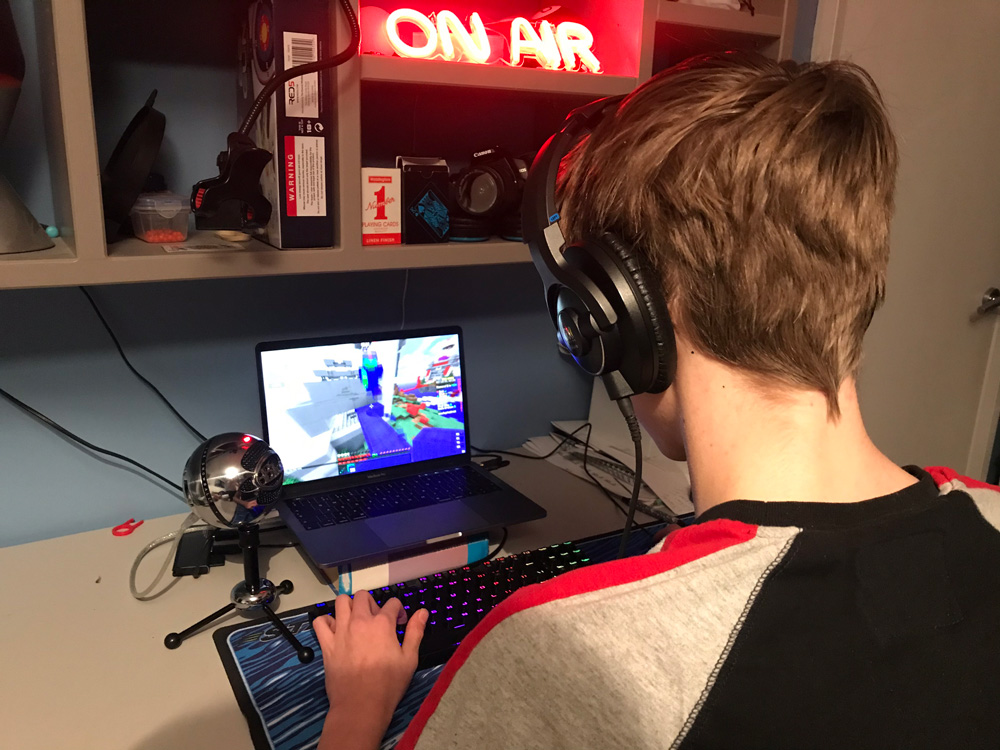Christian charity offers advice on supporting adolescents in lockdown
Fegans counsellor Louise Tantam shares some advice for families with teenagers struggling at this time - and reassures parents that they needn’t feel endlessly guilty about relaxing the rules around lie ins and screen time.

At a time when they would naturally be taking their first steps to independence and enjoying greater freedom, life for teenagers has currently shrunk to the size of their living space and the people within it. So how can parents support their teenagers in this difficult time - and find ways to cope themselves?
Christian charity Fegans provides professional children’s counselling and parenting support services. Having run hundreds of Zoom counselling sessions for secondary school children in lockdown, as well as online support for parents, the charity’s therapists have first-hand experience of the day-to-day strategies that can make a real difference.
Top 10 Tips for Teenagers:
1 Take the opportunity to try a new structure to the day, allowing teenagers to get up a bit later,which studies have shown suits the adolescent brain.
2 Acknowledge the benefits of gaming and social media as a lifeline to the outside world, whilst maintaining some healthy boundaries as a family and being curious about how they remain safe on social media.
'Gaming (when used in moderation) can bring some benefits. Cognitive skills are developed through visual processing, problem solving, analysing information and making decisions. In a time when there is so little opportunity for social contacts it offers a way to connect with others and develop social skills.'
3 Plan for the future and talk about what your teenager would like to do when lockdown is lifted. Be imaginative and collaborative about alternative ways they can mark rites of passage in the meantime.
'Think with your teenager about important rites of passage they are missing, help them to acknowledge disappointment but think with them about an alternative way they can mark the occasion. If lockdown restrictions allow, could a meal with important friends take the place of a school prom? Or a camping trip replace a school residential trip?'
4 Look for emotions behind their behaviour and show empathy and patience. Do not attempt to have conversations when they are at the height of distress when their brains are incapable of rational thinking.
'Lockdown is bringing teenagers a whole new set of feelings that may include frustration, anxiety, isolation, loneliness and anger. Feelings are most likely to come out in behaviour. So look for the emotions that are behind behaviour. As a parent, empathy, understanding and patience is going to make all the difference. Validate their feelings and let them know that even if their behaviour is not acceptable, their feelings are.
'And don’t take things too personally. Remember that children will bring their most hateful and difficult feelings to the people they love most and feel secure with.'
5 Be aware of negative coping strategies in teens for example, use of drugs and alcohol, self-harm or eating problems. Let your child know that there are adults around especially trained to support young people if they feel unable to talk to you. Fegans counsellors for example are supporting teenagers via Zoom sessions and there are lots of free resources on the internet via organisations like www.youngminds.org.uk
6 Encourage exercise and time outdoors.
'Exercise promotes chemical change in the brain that reduces anxiety, improves mood and makes you relaxed. Encourage time outside which increases serotonin (a mood stabiliser) and brings feelings of well-being and happiness. Sun helps our body create vitamin D levels which keep bones, teeth and muscles healthy.'
7 Talk to teenagers about the news, and have adult conversations about the decisions politicians are making.
'News close to home – which used to be their safe place - has been frightening and relentless over the past year. Talking together about the news and thinking through decisions politicians and health experts are making can help them to process thoughts and talk through anxieties.'
8 Encourage mindful activities such as meditation and journaling.
'Mindfulness exercises and breathing can help young people centre themselves and feel a sense of calm. Journaling is becoming a popular way for teenagers to process feelings.'
9 Put some fun things in the diary to do during lockdown such as movie night, virtual parties, exercising together or special meals. Find something that makes all of the family laugh together.
'Laughter is the best medicine.'
10 Finally, look after yourself. Remember that when you are supporting others it is even more important to look after yourself.
'As the saying goes, put on your own oxygen mask first. This stage too will pass.'
A wealth of free parenting and mental health advice is available from Fegans via its website and a free 'Parenting in a Pandemic' e-newsletter. To sign up visit www.fegans.org.uk/parenting-in-a-pandemic
If you would like to refer a teenager for counselling visit www.fegans.org.uk/referrals or call 01892 538288. Bursaries are available for those who are unable to meet the full cost of therapy.
Fegans is a 150-year-old Christian charity that has continually delivered care to children and families according to the needs of each succeeding generation. Today, we counsel children and provide parent support, intervention and training. Combining these disciplines gives Fegans the opportunity to work with families holistically… counselling the child, supporting the parent.
Do you have a view? Share your thoughts via our letters' page.
Baptist Times, 15/02/2021